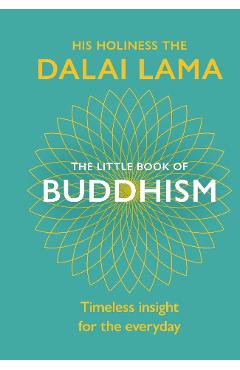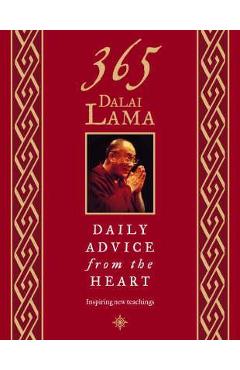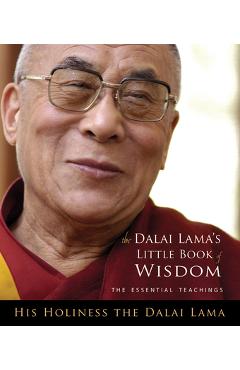Freedom in Exile: The Autobiography of the Dalai Lama - Dalai Lama

Detalii Freedom in Exile: The Autobiography
libris.ro
124.93 Lei
138.81 Lei
Biography & Autobiography
Dalai Lama
Freedom in Exile: The Autobiography - Disponibil la libris.ro
Pe YEO găsești Freedom in Exile: The Autobiography de la Dalai Lama, în categoria Biography & Autobiography.
Indiferent de nevoile tale, Freedom in Exile: The Autobiography of the Dalai Lama - Dalai Lama din categoria Biography & Autobiography îți poate aduce un echilibru perfect între calitate și preț, cu avantaje practice și moderne.
Caracteristici și Avantaje ale produsului Freedom in Exile: The Autobiography
- Departament: auto-moto-rca
- Ideal pentru iubitorii de mașini și motociclete.
- Conținutul acestui produs te ajută să întreții și să îmbunătățești performanțele vehiculului tău.
Preț: 124.93 Lei
Caracteristicile produsului Freedom in Exile: The Autobiography
- Brand: Dalai Lama
- Categoria: Biography & Autobiography
- Magazin: libris.ro
- Ultima actualizare: 28-10-2025 01:22:05
Comandă Freedom in Exile: The Autobiography Online, Simplu și Rapid
Prin intermediul platformei YEO, poți comanda Freedom in Exile: The Autobiography de la libris.ro rapid și în siguranță. Bucură-te de o experiență de cumpărături online optimizată și descoperă cele mai bune oferte actualizate constant.
Descriere magazin:
Some believe him to be a living reincarnation of the Buddha; some despise him as a counterrevolutionary. He has charmed Hollywood celebrities and the heads of nations, while fearlessly defending his beliefs. Freedom in Exile explores the amazing life of the fourteenth Dalai Lama: his discovery at age four; his dangerous escape from Chinese-occupied Tibet in 1959; his diplomatic efforts on behalf of his country; his Nobel Peace Prize in 1989; his personal spirituality and his continuing popularity. In this astonishingly frank autobiography, the Dalai Lama reveals the remarkable inner strength that allowed him to master both the mysteries of Tibetan Buddhism and the brutal realities of Chinese Communism. He describes the five decades of Chinese rule which have left 1.25 million Tibetans dead and the Tibetan natural and religious landscapes decimated, yet his story is one of hope. Inspiring in every way, Freedom in Exile is both a historical document and an example of deep trust in humanity. Tenzin Gyatso, His Holiness the Fourteenth Dalai Lama, is the spiritual and temporal leader of the Tibetan people. His tireless efforts on behalf of human rights and world peace have brought him international recognition. He is a recipient of the Wallenberg Award (conferred by the U.S. Congressional Human Rights Foundation), the Albert Schweitzer Award, and the Nobel Peace Prize. A simple and powerful autobiography. The Dalai Lama\'s story of exile must serve, of course, as a vital historical witness, not only to inhumanity but to compassion as well, not only to betrayal and treachery but to generosity and faithfulness. -- Los Angeles Times Book Review

Produse asemănătoare

Freedom In Exile. The Autobiography of the Dalai Lama of Tibet, Paperback/His Holiness The Dalai Lama
![]() elefant.ro
elefant.ro
Actualizat in 28/10/2025
93.99 Lei

Freedom in Exile: The Autobiography of the Dalai Lama - Dalai Lama
![]() libris.ro
libris.ro
Actualizat in 28/10/2025
124.93 Lei
Produse marca Dalai Lama

The Art of Happiness: A Handbook for Living - Dalai Lama
![]() libris.ro
libris.ro
Actualizat in 28/10/2025
167.4 Lei
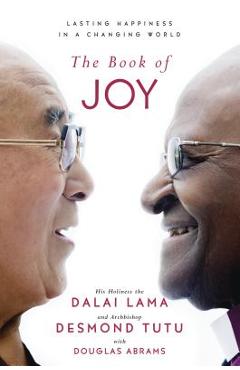
The Book of Joy: Lasting Happiness in a Changing World - Dalai Lama
![]() libris.ro
libris.ro
Actualizat in 28/10/2025
156.24 Lei
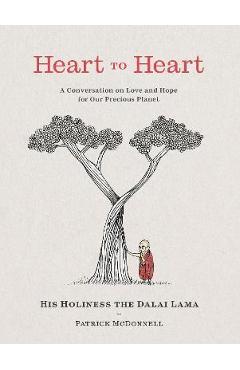
Heart to Heart: A Conversation on Love and Hope for Our Precious Planet - Dalai Lama
![]() libris.ro
libris.ro
Actualizat in 28/10/2025
139.45 Lei

